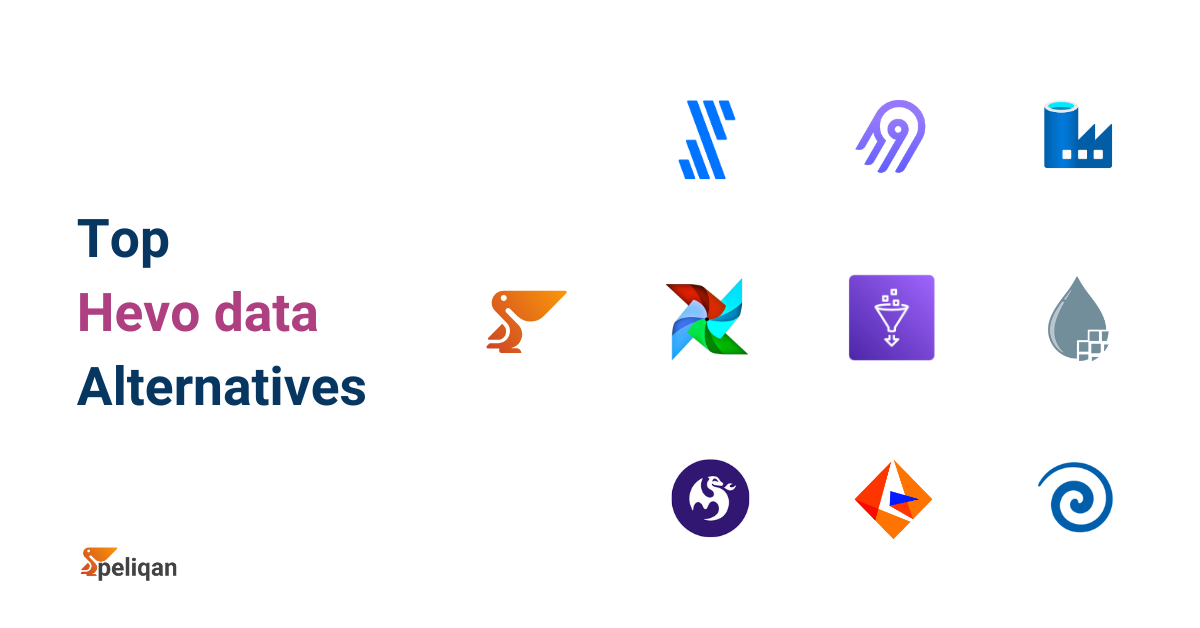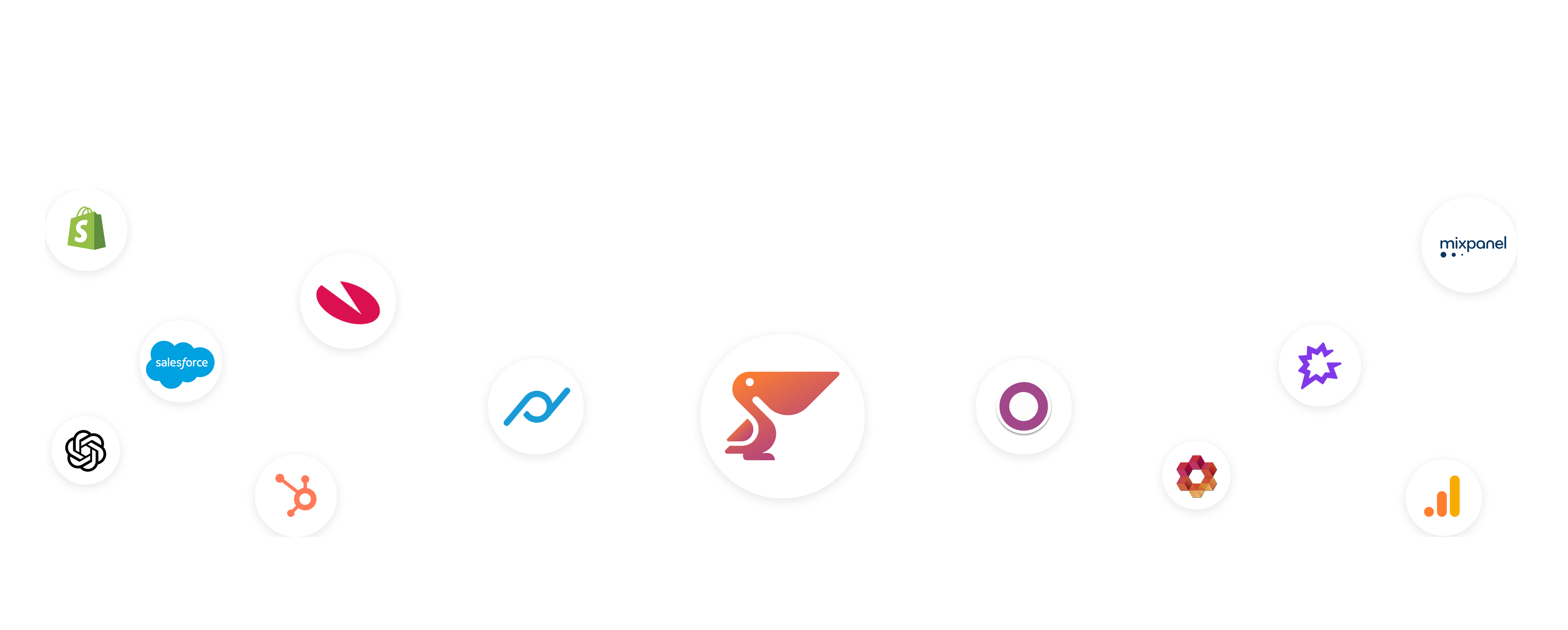Peliqan | – All-in-one data platform with built-in warehouse and 250+ connectors – AI-assisted SQL and low-code Python development – Data activation with reverse ETL and API publishing – Federated queries across multiple data sources | – Eliminates need for separate ETL, warehousing, and BI tools – 10X faster deployment than traditional data stacks – Most cost-effective with transparent pricing | Transparent pricing starting at $380/month, no hidden costs. | – Newer platform founded in 2022 – Fewer legacy enterprise integrations than established competitors |
Fivetran | – 500+ automated enterprise connectors with zero maintenance – Automated schema detection and change management – Real-time and batch data synchronization – Enterprise-grade data governance and lineage | – Fully automated approach requiring minimal technical intervention – Largest enterprise connector ecosystem – Proven reliability for mission-critical data pipelines | Monthly Active Rows (MAR) starting at $120/month for 100k MAR, scales to $500-$2,000+ for enterprise | – Premium pricing model limits accessibility – Limited customization due to automated approach |
Airbyte | – Largest connector catalog (600+) through open-source community – AI-powered connector builder for rapid custom development – Support for structured and unstructured data – Vector database integration for AI/ML workflows | – Open-source flexibility with complete customization control – Transparent capacity-based pricing model – Cutting-edge AI/ML integration capabilities | Free self-hosted version, Cloud services at $10/month base plus $2.50 per credit | – Requires significant technical expertise for management – Varying quality of community-developed connectors |
Microsoft Azure Data Factory | – 90+ enterprise connectors with visual ETL/ELT design – Hybrid cloud architecture supporting on-premise integration – Deep Microsoft ecosystem integration (Power BI, Azure ML) – Serverless architecture with unlimited scalability | – Seamless integration across entire Microsoft ecosystem – Enterprise-grade governance and compliance features – No infrastructure management with serverless model | Pay-as-you-go consumption model, typically $1,000-$10,000+ monthly for enterprise deployments | – Microsoft ecosystem focus limits multi-cloud flexibility – Complexity for advanced transformations requiring additional skills |
Apache Airflow | – Workflow-as-code development with Python – 200+ operators and hooks for system integration – Rich web-based monitoring and data lineage – Scalable execution with complex workflow orchestration | – Unlimited customization through code-first approach – No vendor lock-in with complete transparency – Extensive community support and continuous development | Free open-source version, managed services from cloud providers at $200-$2,000+ monthly | – Steep learning curve requiring Python expertise – Not a traditional ETL tool, requires additional components |
AWS Glue | – 100+ data source connectors with serverless architecture – AI-powered code generation and optimization – Built on Apache Spark with data catalog discovery – Multi-engine support for diverse processing needs | – Unlimited scalability handling enterprise data volumes – AI-enhanced development reducing technical complexity – Deep AWS ecosystem integration | Pay-per-use at $0.44 per DPU-hour, typically $500-$5,000+ monthly for enterprise workloads | – AWS vendor lock-in limiting multi-cloud strategies – Potential high costs for continuous processing workloads |
Apache NiFi | – Visual drag-and-drop interface for data flow design – 200+ built-in processors for various data operations – Comprehensive data provenance and audit capabilities – Real-time and batch processing with enterprise security | – User-friendly visual interface reducing coding requirements – Excellent data lineage and provenance tracking – Originally developed by NSA with enterprise-grade security | Free open-source platform, infrastructure costs typically $300-$3,000+ monthly | – Resource-intensive requiring substantial infrastructure – Infrastructure management responsibilities for deployment |
Meltano | – 600+ Singer-based connectors with CLI-first development – Native dbt integration for transformation workflows – Version control integration enabling GitOps practices – Built-in orchestration with modern development approach | – Comprehensive ELT capabilities without licensing costs – Excellent developer experience with modern practices – Strong community support and active development | Free open-source version, infrastructure costs typically $200-$2,000+ monthly | – Requires technical expertise for setup and maintenance – Limited GUI interface favoring command-line workflows |
Informatica PowerCenter | – 500+ enterprise connectors with comprehensive data management – Advanced data quality, governance, and master data management – AI-powered operations with metadata management – Regulatory compliance and enterprise-grade features | – Industry leader for 11 consecutive years – Complete data management lifecycle coverage – Proven enterprise scalability and reliability | Enterprise licensing typically $50,000-$500,000+ annually depending on deployment size | – High costs requiring significant investment – Complex licensing structure and long implementation timelines |
Matillion | – Cloud-native ETL optimized for Snowflake, BigQuery, Redshift – Visual drag-and-drop interface with pushdown processing – 100+ pre-built connectors with advanced orchestration – Leverages cloud warehouse compute for transformations | – Native cloud warehouse integration and optimization – Powerful transformation capabilities using warehouse compute – Visual development environment reducing coding requirements | Credit-based model at $2.00 per credit, typically $1,000-$8,000+ monthly for enterprise usage | – Limited to cloud warehouse environments only – Credit-based pricing complexity requiring cost management |












